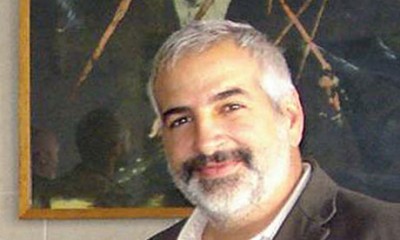
By : Ben Dowell
Journalists and senior politicians have paid tribute to Anthony Shadid, the Pulitzer prize-winning New York Times correspondent who died in Syria on Thursday while reporting the uprising.
According to New York Times photographer Tyler Hicks, who was with Shadid in Syria, he died from an asthma attack brought on by an allergy to the horses used by his guides. Hicks carried his body to Turkey, the New York Times reported.
“I stood next to him and asked if he was OK, and then he collapsed,” Mr. Hicks said. “He was not conscious and his breathing was very faint and very shallow.” His efforts to revive the reporter failed, the paper reported.
Susan E Rice, the US ambassador to the UN, wrote on Twitter that she was “heartbroken” by the loss of Shadid, who had been reporting inside Syria for a week. She called him “one of the world’s bravest and best journalists”.
CNN anchor Anderson Cooper also took to Twitter to mourn the “terrible loss” and pay tribute to the “brave and smart reporter”.
Martin Baron, the editor of Shadid’s old paper the Boston Globe told the New York Times that the he “had such a profound and sophisticated understanding of the region”. Baron added: “More than anything, his effort to connect foreign coverage with real people on the ground, and to understand their lives, is what made his work so special.”
“He changed the way we saw Iraq, Egypt, Syria over the last, crucial decade,” said Phil Bennett, a former managing editor of The Washington Post who worked closely with Shadid, told the paper. “There is no one to replace him.”
Shadid, a 43-year-old American of Lebanese descent and a fluent Arabic speaker, joined the New York Times from the Washington Post as Baghdad bureau chief at the end of 2009, and became the newspaper’s bureau chief in Beirut, Lebanon, last year.
In 2002 he was shot in the shoulder while reporting in Ramallah for the Boston Globe and in March last year he and three colleagues were kidnapped in Libya and held for six days. Shadid won the Pulitzer prize for his coverage of Iraq in 2004 and 2010.
In 2004 the Pulitzer board praised “his extraordinary ability to capture, at personal peril, the voices and emotions of Iraqis as their country was invaded, their leader toppled and their way of life upended”.
Shadid has also been nominated, along with a team of his colleagues, for the 2012 Pulitzer in international reporting, which are to be announced in April.
In its citation accompanying the nomination, the New York Times wrote: “Steeped in Arab political history but also in its culture, Shadid recognized early on that along with the despots, old habits of fear, passivity and despair were being toppled. He brought a poet’s voice, a deep empathy for the ordinary person and an unmatched authority to his passionate dispatches.”
His eloquence was also praised by Steve Fainaru, a former Washington Post reporter who worked with Shadid in Iraq. “He wrote poetry on deadline,” Fainaru told his newspaper, adding that he “was able to somehow find compassion and empathy in everything he touched and wrote about.”
Guardian

Leave a Reply
You must be logged in to post a comment.